-

ပတ်ဝန်းကျင်ဆိုင်ရာ လေ့လာမှုများအပေါ် ရေအရည်အသွေး တိုင်းတာရေး ကိရိယာများ၏ သက်ရောက်မှု
2024/11/13Lianhua ၏ ပါမစ်စုံ ရေအရည်အသွေးတိုင်းစက်များသည် ပတ်ဝန်းကျင်ဆိုင်ရာ လေ့လာမှုများနှင့် ရေစီမံခန့်ခွဲမှုအတွက် ထိရောက်ပြီး တိကျသော အချက်အလက်များကို ပေးသည်။
-

ဓာတ်ခွဲခန်း ထိရောက်မှု မြှင့်တင်ရန် BOD Analyzers များတွင် တီထွင်မှုများ
2024/11/07Lianhua ၏ အဆင့်မြင့် BOD စစ်ဆေးစက်များသည် ရေအရည်အသွေးကို ယုံကြည်စိတ်ချရသော စိစစ်မှုအတွက် ပိုမိုမြန်ဆန်သော စမ်းသပ်မှု၊ တိကျမှုမြင့်မားမှုနှင့် ပိုမိုထိရောက်မှု တိုးတက်စေသည်။
-

သယ်ဆောင်နိုင်သော COD Analyzer ဖြင့် တိကျသော တိုင်းတာမှုများကို အာမခံခြင်း
2024/11/01Lianhua ၏ Portable COD Analyzer သည် တိကျမှု၊ ပေါ်လွင်မှုနှင့် အသုံးပြုရလွယ်ကူမှုဖြင့် ရေအရည်အသွေး စမ်းသပ်မှုကို တိကျစွာ၊ အမြန်စွာ ပြုလုပ်နိုင်စေသည်။
-
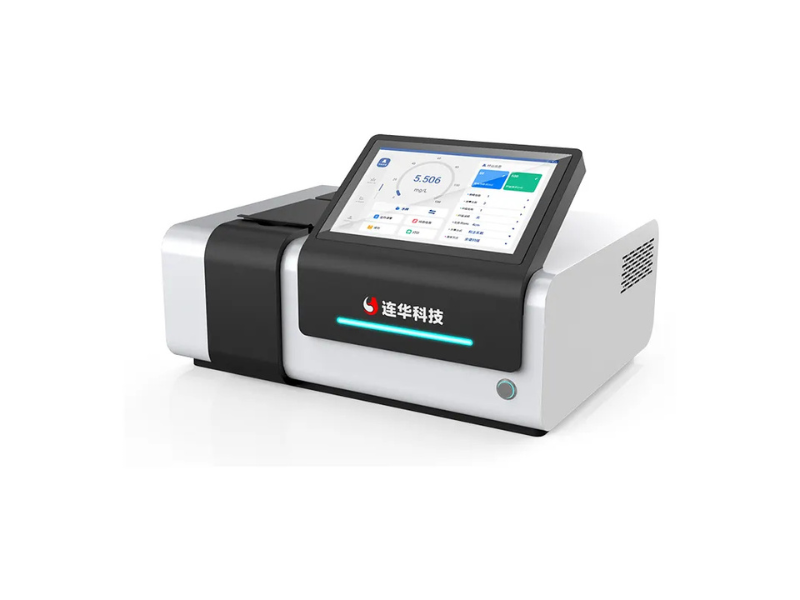
ယုံကြည်စိတ်ချရသော ဆီနှင့်ဂရိတ်စစ်ဆေးကိရိယာ ထုတ်လုပ်သူကို ဘယ်လိုရွေးချယ်မလဲ။
2026/01/15ဆီနှင့်ဂရိတ်စစ်ဆေးကိရိယာ ထုတ်လုပ်သူကို ရွေးချယ်ရာတွင် အခက်အခဲဖြစ်နေပါသလား။ သက်ဆိုင်ရာစည်းမျဉ်းများနှင့် ကိုက်ညီမှု၊ တိကျမှုနှင့် ရင်းနှီးမြှုပ်နှံမှုအပေါ် အကျိုးအမြတ်ရရှိရေးအတွက် အတွေ့အကြုံ၊ အရည်အသွေး၊ ပံ့ပိုးမှု၊ လေ့ကျင့်သင်ကြားမှုနှင့် ဝန်ဆောင်မှုတို့ဟူသော အဓိက ဌာနချက် ၅ ချက်ကို ရှာဖွေတွေ့ရှိပါ။ သင့်အတွက် စစ်ဆေးအကဲဖြတ်မှုစာရင်းကို ဒေါင်းလုဒ်လုပ်ပါ။
-
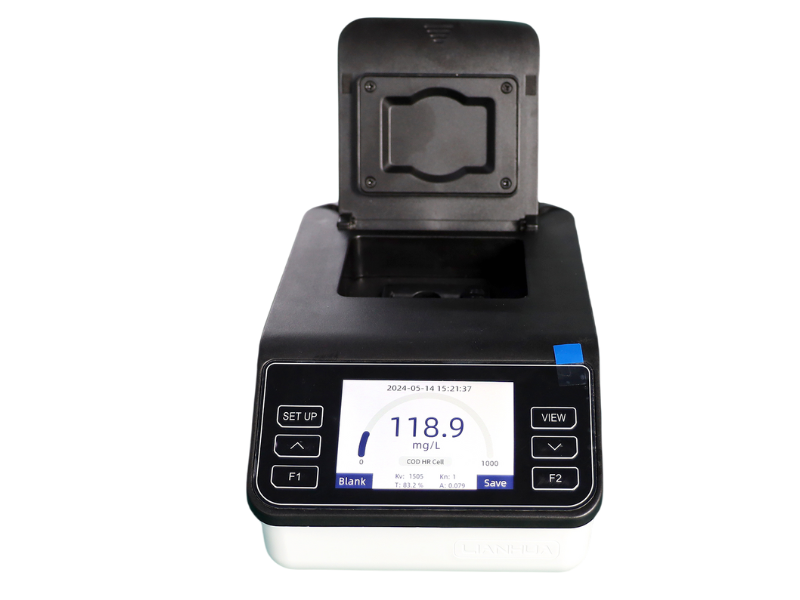
ရေထုထဲမှ ဆီနှင့် အဆီများကို အဘယ့်ကြောင့် ခွဲခြမ်းလေ့လာသင့်သနည်း။
2026/01/10ဆီနှင့် အဆီကို ဘာကြောင့် လျစ်လျူရှုမိပါသနည်း။ ၎င်းတို့သည် ပိုက်လိုင်းများကို ပိတ်ဆို့စေပြီး ဇီဝဖြိုခွဲစနစ်ကို ပျက်ကွက်စေကာ ဒဏ်ကြေးများ ကျခံရစေနိုင်ပါသည်။ တိကျသော ဆန်းစစ်မှုများက စည်းမျဉ်းလိုက်နာမှုကို သေချာစေပြီး ကုန်ကျစရိတ်များ လျှော့ချပေးကာ သဘာဝ အစိတ်အပိုင်းများကို ကာကွယ်ပေးပါသည်။ B2B အသိအမြင်များကို ရယူလိုက်ပါ။
-
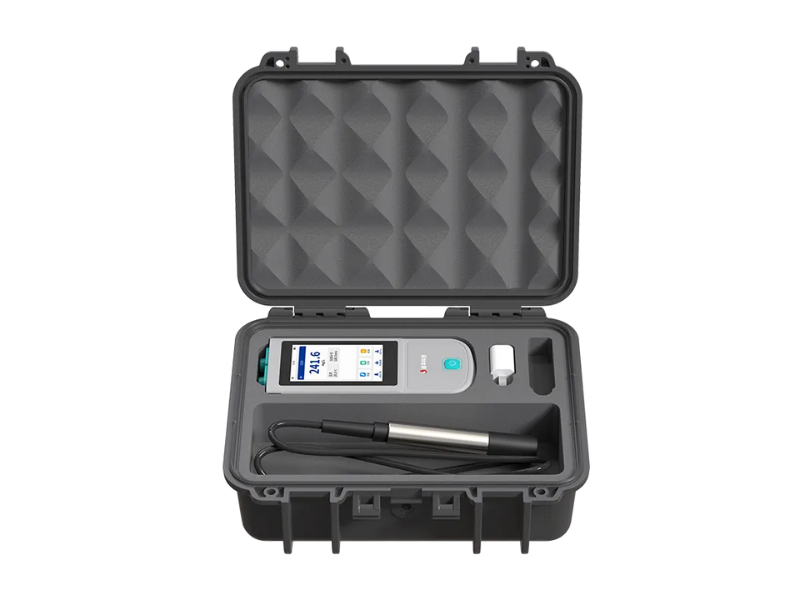
ပတ်ဝန်းကျင်ကာကွယ်ရေးတွင် DO စောင့်ကြည့်ခြင်းသည် အဘယ့်ကြောင့်အရေးပါပါသနည်း။
2026/01/05ဓာတ်လိုက်ထားသော အောက်ဆီဂျင် (DO) စောင့်ကြည့်ခြင်းသည် စနစ်တကျ ကျန်းမာမှုကို ဖော်ထုတ်ခြင်း၊ ညစ်ညမ်းမှုကို ဖော်ထုတ်ခြင်းနှင့် စည်းမျဉ်းစည်းကမ်းများနှင့် ကိုက်ညီမှုရှိစေရန် မည်သို့ပြုလုပ်ပေးသည်ကို ရှာဖွေလေ့လာပါ။ ရေကိုကာကွယ်ရန်အတွက် အဘယ့်ကြောင့် အရေးကြီးသည်ကို သင်ယူပါ—ပြည့်စုံသော လမ်းညွှန်ချက်ကိုရယူပါ။
-
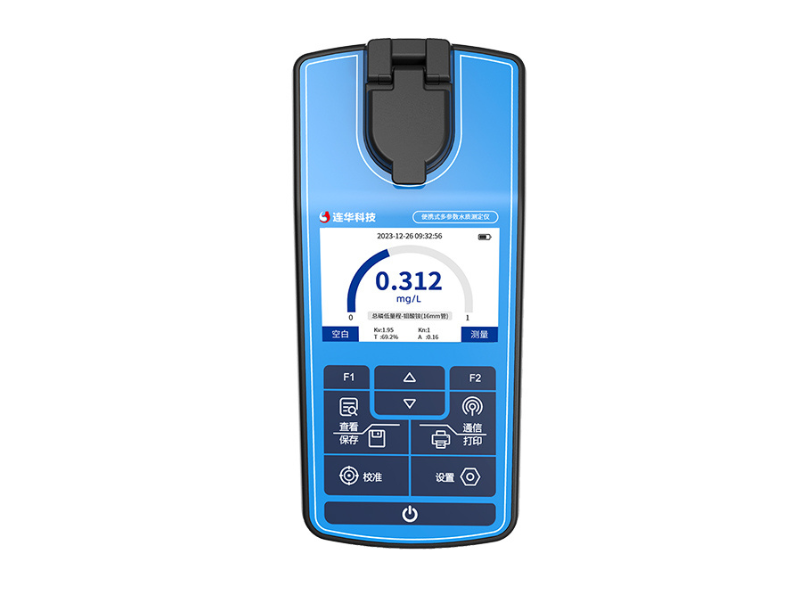
ရေအရည်အသွေး စောင့်ကြည့်ခြင်းတွင် ကျန်ရစ်သော ကလိုရင်းကို အဘယ့်ကြောင့် စမ်းသပ်သင့်သနည်း
2025/12/25ကလိုရင်းဓာတ်ကျန်ပမာဏစမ်းသပ်ခြင်းဖြင့် ရောဂါပိုးမွှားများ ပြန့်ပွားမှုကို ကာကွယ်နိုင်ခြင်း၊ EPA/WHO စံချိန်စံညွှန်းများ (0.2–4.0 mg/L) နှင့်ကိုက်ညီစေခြင်း၊ DBPs နှင့် သံချေးတက်ခြင်းများကို ရှောင်ရှားနိုင်ခြင်း၊ SCADA စနစ်ဖြင့် အချိန်နှင့်တစီးစီးထိန်းချုပ်နိုင်ခြင်းတို့ကို ဘာကြောင့်ရရှိရသည်ကို သိရှိလိုက်ပါ။ ကိုက်ညီမှုနှင့် လုံခြုံမှုကို သေချာစေရန် လမ်းညွှန်ချက်ကိုရယူပါ။
-
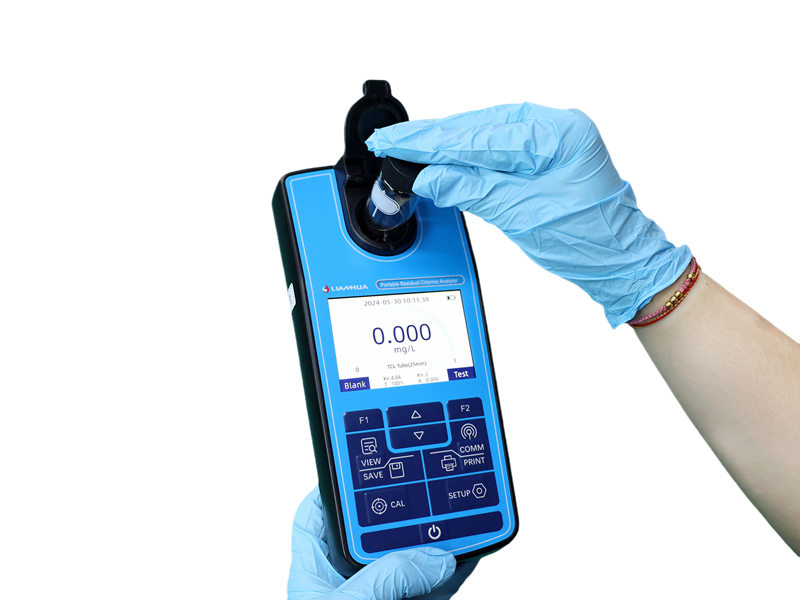
ရေစီးမှ ကလိုရင်းကို မော်နစ်တာလုပ်ရသည့်အကြောင်းရင်းများကို အဘယ်ကြောင့်စောင့်ကြည့်ရမည်?
2025/12/19စွန့်ပစ်ရေတွင် ကျန်ရစ်သော ကလိုရင်းကို ဘာကြောင့် စောင့်ကြည့်ရမလဲ။ ပိုးမွှားများကို သေစေရန် သေချာစေပါ၊ EPA ၏ ဒဏ်ကြေးများကို ရှောင်ပါ၊ DBPs များကို ကာကွယ်ပါနှင့် ရေတွင်းဇီဝများကို ကာကွယ်ပါ။ စစ်မှန်သော အချိန်နှင့်တစ်ပြေးညီ အနှဲ့ခွဲစိတ်ကိရိယာများက လိုက်နာမှုနှင့် ဘေးကင်းမှုကို မည်သို့ တိုးတက်စေသည်ကို ရှာဖွေလိုက်ပါ။
-
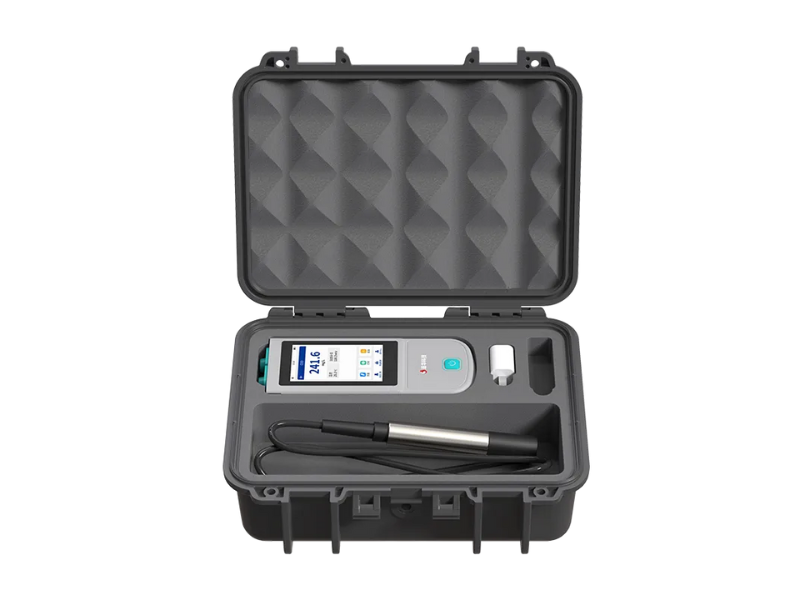
အော်ပတစ် DO မီတာသည် ရေစီးကြောင်းကုထုံးကုသခြင်းတွင် မည်သို့အထောက်အကူပြုပါသနည်း။
2025/12/15ယုံကြည်စိတ်ချရခြင်းမရှိသော DO ဖတ်ရှုမှုများ၊ ထိန်းသိမ်းမှုကုန်ကျစရိတ်များခြင်းနှင့် လေဖြည့်မှုအကုန်အကျများခြင်းတို့နှင့် ရင်ဆိုင်နေရပါသလား။ အော်ပတစ် DO မီတာများသည် ကယ်လီဘရေးရှင်းလုပ်ငန်းကို လျှော့ချပေးပြီး တိကျမှုကို မြှင့်တင်ပေးကာ စွမ်းအင်ကုန်ကျစရိတ်ကို ၂၀% နှင့်အထက် ခြွေတာပေးနိုင်ပါသည်။ မည်သို့ပြုလုပ်သည်ကို ကြည့်ပါ။
-
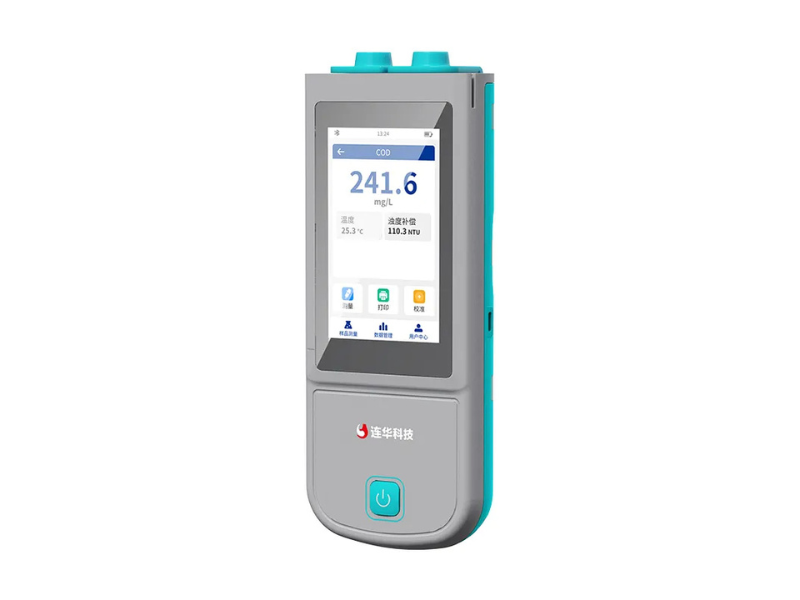
အော်ပတစ် DO မီတာ ထုတ်လုပ်သူကို မည်သို့ရွေးချယ်မည်နည်း
2025/12/08အော့ပတ်တစ်ပျော်ဝင်နေသော အောက်ဆီဂျင်မီတာကို ရွေးချယ်ရာတွင် အခက်အခဲဖြစ်နေပါသလား။ ယုံကြည်စိတ်ချရမှု၊ ပံ့ပိုးမှုနှင့် ရေရှည်တန်ဖိုးတို့အတွက် ထုတ်လုပ်သူများကို စိစစ်ရန် အဓိက အချက် ၅ ချက်ကို ရှာဖွေပါ။ စစ်ဆေးရန် စာရင်းကိုရယူပါ။
-

ကျန်ရစ်သော ကလိုရင်းခ်င်းဓာတ်ခွဲခြမ်းစိတ်ဖြာမှုကိရိယာဖြင့် သောက်သုံးရမည့်ရေ၏ ဘေးကင်းလုံခြုံမှုကို မည်သို့အာမခံနိုင်မည်နည်း။
2025/12/01ရေ၏ဘေးကင်းလုံခြုံမှုနှင့် ကိုက်ညီမှုအတွက် ပြဿနာရှိနေပါသလား။ ကျန်ရစ်သော ကလိုရင်းခ်င်းဓာတ်ခွဲခြမ်းစိတ်ဖြာမှုကိရိယာသည် ရောဂါပိုးမွှားများ ပျံ့နှံ့ခြင်းကို ကာကွယ်ရန်၊ ကုန်ကျစရိတ်ကို လျှော့ချရန်နှင့် EPA စံနှုန်းများနှင့် ကိုက်ညီရန် အချိန်နှင့်တစ်ပြေးညီ ရေသန့်စင်ခြင်းကို စောင့်ကြည့်ပေးပါသည်။ ၎င်း၏လုပ်ဆောင်ပုံနှင့် အသုံးပြုသူများက ၎င်းကို အဘယ်ကြောင့် ယုံကြည်ကြသည်ကို ရှာဖွေလေ့လာပါ။
-

မာတိကာအများပါဝင်သော ရေအရည်အသွေးခွဲခြမ်းစိတ်ဖြာရေးစက်ရုံကို ဘယ်လိုအကဲဖြတ်မလဲ?
2025/11/25ရေအရည်အသွေးခွဲခြမ်းစိတ်ဖြာရေးကိရိယာ ပေးသွင်းသူများကို အကဲဖြတ်ရန် ခက်နေပါသလား။ ထောက်ပံ့မှု၊ ထုတ်ကုန်အရည်အသွေး၊ အသိအမှတ်ပြုလက်မှတ်များ စသည့် ယုံကြည်စိတ်ချရပြီး တိကျသော စမ်းသပ်မှုများအတွက် အရေးပါသည့် အချက် (၆) ချက်ကို ရှာဖွေပါ။ အပြည့်အစုံ လမ်းညွှန်ချက်ကို ယခုပဲ ရယူပါ။

